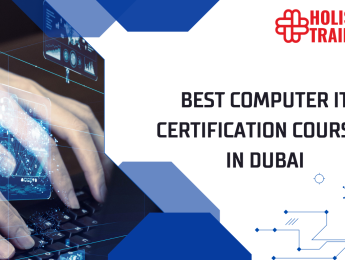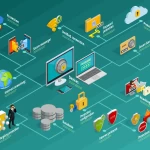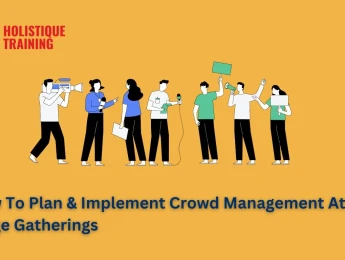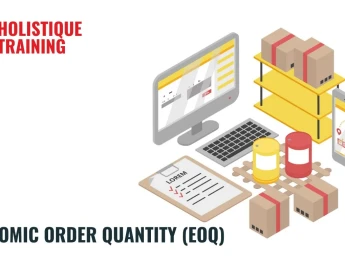- Table of Contents
- 1. Cisco Certified Network Associate (CCNA)
- 2. CompTIA A+
- 3. Certified Information Systems Security Professional (CISSP)
- 4. Microsoft Certified: Azure Fundamentals
- 5. Certified Ethical Hacker (CEH)
- 6. Project Management Professional (PMP)
- 7. Google Cloud Professional Data Engineer
- 8. Cloud Management & Security Holistique Training
Introduction
Learning Computer IT encompasses a broad range of skills and knowledge essential for navigating and excelling in today’s technology-driven world. It involves understanding fundamental concepts such as hardware, software, networking, and cybersecurity, as well as gaining proficiency in managing and optimizing IT systems. By mastering these areas, individuals can effectively troubleshoot technical issues, implement security measures, and leverage technology to solve complex problems. Whether you're starting a career in IT or seeking to advance your existing skills, acquiring IT knowledge opens up diverse opportunities and equips you with the tools to thrive in various technology roles.
1. Cisco Certified Network Associate (CCNA)
- Summary: The CCNA course provides foundational knowledge and skills in networking, including IP addressing, network security, and the management of network infrastructure. It covers routing and switching technologies, network automation, and network programmability.
- Duration: 6-8 weeks
- Language: English
- Level: Beginner to Intermediate
- What does the CCNA course teach you? It teaches you networking fundamentals, including how to install, configure, and troubleshoot networks. You’ll also learn about network security and how to manage and optimize network performance.
- Who should take the CCNA course? This course is ideal for individuals looking to start a career in networking or IT professionals aiming to advance their skills in network management.
- Why should you take the CCNA course? The CCNA certification is globally recognized and opens up numerous career opportunities in networking and IT. It’s a valuable credential for anyone looking to build a solid foundation in network technology.
2. CompTIA A+
- Summary: The CompTIA A+ certification covers essential IT skills and knowledge, including hardware, operating systems, networking, and troubleshooting. It’s designed for those who are new to IT and wish to gain a broad understanding of computer support.
- Duration: 4-6 weeks
- Language: English
- Level: Beginner
- What does the CompTIA A+ course teach you? It teaches the basics of IT hardware and software, including installation, maintenance, and troubleshooting of computer systems and networks.
- Who should take the CompTIA A+ course? Ideal for beginners or those seeking to enter the IT support field. It’s suitable for individuals aiming to become IT support specialists or help desk technicians.
- Why should you take the CompTIA A+ course? It’s a foundational certification that provides a broad base of IT knowledge, making it easier to move into various IT roles. It’s also a prerequisite for more advanced IT certifications.
3. Certified Information Systems Security Professional (CISSP)
- Summary: The CISSP course focuses on information security and management, including risk management, security and risk analysis, and asset security. It’s designed for professionals seeking to advance their knowledge and career in cybersecurity.
- Duration: 8-12 weeks
- Language: English
- Level: Advanced
- What does the CISSP course teach you? It covers comprehensive topics in information security, including designing, implementing, and managing a best-in-class cybersecurity program.
- Who should take the CISSP course? Security professionals, IT managers, and those looking to advance their career in information security.
- Why should you take the CISSP course? It’s a prestigious certification that demonstrates expertise in cybersecurity and is highly valued by employers. It can significantly enhance your career prospects in the field of security.
4. Microsoft Certified: Azure Fundamentals
- Summary: This course provides a foundational understanding of Microsoft Azure, including cloud concepts, core Azure services, and security. It’s suitable for individuals new to cloud computing or those looking to start with Azure.
- Duration: 4-6 weeks
- Language: English
- Level: Beginner
- What does the Azure Fundamentals course teach you? It introduces the basics of cloud computing and Azure services, including pricing, SLA, and lifecycle, and how to navigate the Azure portal.
- Who should take the Azure Fundamentals course? Beginners to cloud computing, IT professionals, or anyone looking to understand Azure basics.
- Why should you take the Azure Fundamentals course? It’s a great starting point for those interested in cloud technology and Azure. It provides a foundational understanding that can be built upon with more advanced Azure certifications.
5. Certified Ethical Hacker (CEH)
- Summary: The CEH course covers ethical hacking techniques and tools, including penetration testing, network scanning, and system hacking. It aims to equip individuals with the skills needed to identify and address security vulnerabilities.
- Duration: 6-8 weeks
- Language: English
- Level: Intermediate to Advanced
- What does the CEH course teach you? It teaches how to think like a hacker and understand the methods and tools used in ethical hacking to identify and fix security vulnerabilities.
- Who should take the CEH course? IT security professionals, ethical hackers, and those involved in network security and risk management.
- Why should you take the CEH course? It’s a respected certification that enhances your skills in cybersecurity and can lead to roles in ethical hacking and penetration testing. It’s essential for those aiming to improve organizational security.
6. Project Management Professional (PMP)
- Summary: Although not exclusively an IT course, the PMP certification covers project management principles and practices relevant to IT projects. It includes topics such as project planning, execution, and management.
- Duration: 8-12 weeks
- Language: English
- Level: Intermediate to Advanced
- What does the PMP course teach you? It teaches project management methodologies, including planning, executing, and overseeing projects to ensure successful completion.
- Who should take the PMP course? Project managers and professionals seeking to enhance their project management skills and advance their careers.
- Why should you take the PMP course? PMP certification is highly recognized and valued across various industries, including IT. It helps in mastering project management practices and advancing career opportunities.
7. Google Cloud Professional Data Engineer
- Summary: This course focuses on designing, building, and managing data processing systems using Google Cloud. It includes topics such as data modeling, machine learning, and data analysis.
- Duration: 6-8 weeks
- Language: English
- Level: Intermediate to Advanced
- What does the Google Cloud Professional Data Engineer course teach you? It teaches how to manage and analyze data using Google Cloud services, including BigQuery and Dataflow, and how to build data pipelines and machine learning models.
- Who should take the Google Cloud Professional Data Engineer course? Data professionals, engineers, and those looking to specialize in cloud data engineering.
- Why should you take the Google Cloud Professional Data Engineer course? It provides expertise in handling data on Google Cloud, which is increasingly important for data-driven roles. It opens up career opportunities in data engineering and cloud computing.
These courses offer a range of certifications suited for various career stages and IT specializations, ensuring a broad selection for advancing skills in the IT field.
8. Cloud Management & Security Holistique Training
- Summary: The course covers managing and securing cloud environments by assessing cloud services, auditing and adjusting security settings, encrypting data, and using vendor contracts to ensure data integrity and availability. It also includes identifying and defending against cybersecurity risks, optimizing cloud practices, and complying with data regulations and standards.
- Duration: 5 days
- Language: English
- Level: Intermediate to Advanced
What does the Cloud Management & Security course teach you? The course teaches how to manage and secure cloud environments, including assessing cloud services, auditing and adjusting security settings, encrypting data, and using vendor contracts to ensure data integrity and availability. It also covers identifying and defending against cybersecurity risks, optimizing cloud practices, and adhering to data regulations and compliance.
Who should take the Cloud Management & Security course? This course is ideal for IT professionals, cloud administrators, and security specialists who need to enhance their skills in managing cloud infrastructure and ensuring robust security measures.
Why should you take the Cloud Management & Security course? The course provides critical skills for safeguarding cloud environments and ensuring compliance with data regulations. It helps professionals optimize cloud practices and effectively defend against cybersecurity threats, making it a valuable credential for advancing careers in cloud management and security.
Table: Summary of Best Computer IT Certification Courses in Dubai
Course Name | Duration | Language | Level |
Cisco Certified Network Associate (CCNA) | 6-8 weeks | English | Beginner to Intermediate |
CompTIA A+ | 4-6 weeks | English | Beginner |
Certified Information Systems Security Professional (CISSP) | 8-12 weeks | English | Advanced |
Microsoft Certified: Azure Fundamentals | 4-6 weeks | English | Beginner |
Certified Ethical Hacker (CEH) | 6-8 weeks | English | Intermediate to Advanced |
Project Management Professional (PMP) | 8-12 weeks | English | Intermediate to Advanced |
Google Cloud Professional Data Engineer | 6-8 weeks | English | Intermediate to Advanced |
Cloud Management & Security - Holistique Training | 5 days | English | Intermediate to Advanced |
























